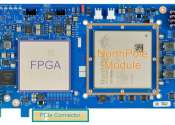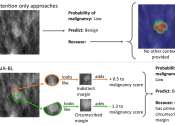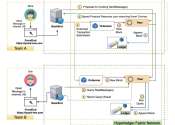Device taps brain waves to help paralyzed man communicate
In a medical first, researchers harnessed the brain waves of a paralyzed man unable to speak—and turned what he intended to say into sentences on a computer screen.
Jul 15, 2021
0
13
Engineering

In a medical first, researchers harnessed the brain waves of a paralyzed man unable to speak—and turned what he intended to say into sentences on a computer screen.
Jul 15, 2021
0
13
Hardware

A large team of computer scientists and engineers at IBM Research has developed a dedicated computer chip that is able to run AI-based image recognition apps 22 times as fast as chips that are currently on the market.
Electronics & Semiconductors

In recent decades, machine learning and deep learning algorithms have become increasingly advanced, so much so that they are now being introduced in a variety of real-world settings. In recent years, some computer scientists ...
Computer Sciences

Past psychology and neuroscience studies have often investigated how humans perceive different faces during social interactions. Some studies suggest that on average humans tend to find some faces more attractive than others, ...
Computer Sciences

Computer engineers and radiologists at Duke University have developed an artificial intelligence platform to analyze potentially cancerous lesions in mammography scans to determine if a patient should receive an invasive ...
Jan 14, 2022
0
530
Automotive

Tesla is recalling about 130,000 vehicles across its U.S. model lineup because their touch screens can overheat and go blank.
May 10, 2022
0
63
Software

Cornell University researchers have created an interface that allows users to handwrite and sketch within computer code—a challenge to conventional coding, which typically relies on typing.
Nov 28, 2022
0
143
Security

A trio of researchers at Cornell University has found that it is possible to hide malware code inside of AI neural networks. Zhi Wang, Chaoge Liu and Xiang Cui have posted a paper describing their experiments with injecting ...
Computer Sciences

When trying to make a purchase with a shopping app, we may quickly browse the recommendation list while admitting that the machine does know about us—at least, it is learning to do so. As an effective emerging technology, ...
Dec 5, 2022
0
39
Security

Data and security breaches are becoming increasingly common, highlighting the vulnerabilities of existing messaging and communications platforms. Devising computational tools and systems that better protect sensitive data ...
A computer is a machine that manipulates data according to a set of instructions.
Although mechanical examples of computers have existed through much of recorded human history, the first electronic computers were developed in the mid-20th century (1940–1945). These were the size of a large room, consuming as much power as several hundred modern personal computers (PCs). Modern computers based on integrated circuits are millions to billions of times more capable than the early machines, and occupy a fraction of the space. Simple computers are small enough to fit into a wristwatch, and can be powered by a watch battery. Personal computers in their various forms are icons of the Information Age and are what most people think of as "computers". The embedded computers found in many devices from MP3 players to fighter aircraft and from toys to industrial robots are however the most numerous.
The ability to store and execute lists of instructions called programs makes computers extremely versatile, distinguishing them from calculators. The Church–Turing thesis is a mathematical statement of this versatility: any computer with a certain minimum capability is, in principle, capable of performing the same tasks that any other computer can perform. Therefore computers ranging from a mobile phone to a supercomputer are all able to perform the same computational tasks, given enough time and storage capacity.
This text uses material from Wikipedia, licensed under CC BY-SA